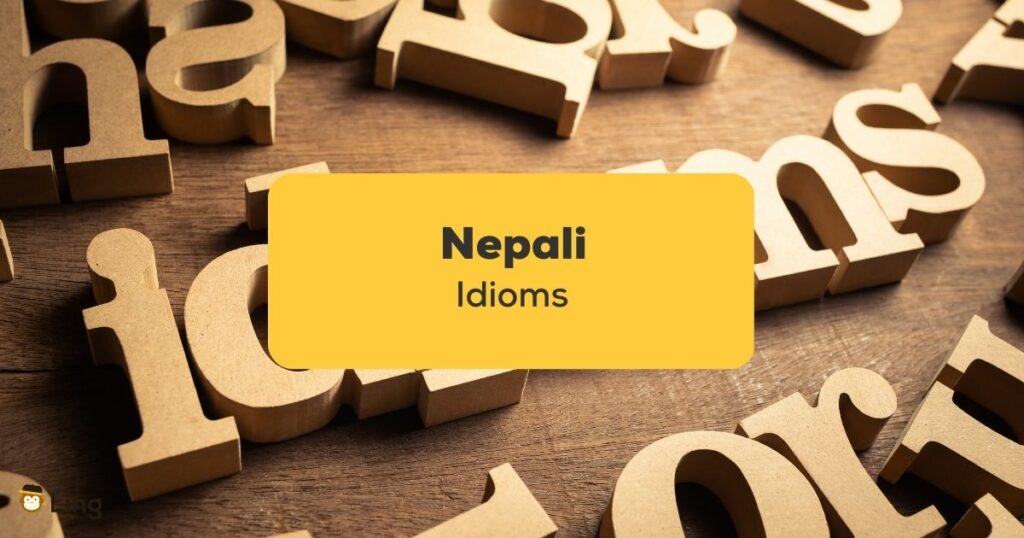Wondering about Nepali idioms? In this blog, we will explore this beautiful country’s rich cultural and linguistic traditions through its idioms. These idioms, often drawn from Nepal’s diverse indigenous languages, offer a window into the country’s history, customs, and values. From proverbs passed down through generations to modern colloquialisms, Nepal’s idioms are an integral part of the nation’s identity and a source of pride for its people. Let’s get to know more about it today!
Idioms are essential to any language, and learning them can help beginners understand better and communicate with native speakers. In Nepali, idioms are critical because they often convey cultural and historical references that outsiders may not immediately notice. By learning these, beginners like you can gain insight into the values and perspectives of the Nepali people and become more adept at using the target language in a way that is natural and appropriate.
Additionally, idioms can add depth and nuance to a beginner’s spoken and written Nepali, allowing them to express themselves more creatively and effectively. Lastly, we cannot deny that mastering idioms can be a fun and engaging way to expand one’s vocabulary and knowledge of the language.

What Are Idioms?
In Nepali, idioms are known as मुहावरे or muhavra. Idioms can be considered a way to turn a phrase or expression. They are always a group of words and not just one word, and they usually do not mean what is written but have a different meaning. Often, it cannot be understood until explained.
Difference Between Idioms And Proverbs
People often confuse idioms with proverbs, and they both give advice and can be inspirational or motivational. But then, here is the trick – idioms, if you don’t learn them, or have them explained to you before, can seem like a familiar or literal phrase, and no one may notice that it has another meaning until someone tells you.
Meanwhile, proverbs are whole sentences that often give the learning or meaning within them. It is why proverbs are known as the “words of the wise.” They carry a lot of deep sense just in one line. We will look at some idioms and phrases to help clarify.

Nepali Idioms And Phrases
Idioms can be of many different categories. Often they relate to money or wealth, health, and expressions. Examples of Nepali idioms are given below. Try to see if you can understand the pun intended in words!
An important thing to note about idioms and proverbs, be careful not to offend anyone while using them. Some meanings can be interpreted as an offense made intentionally. Being a new user of Nepali idioms, you might want to wait before you pick a fight! Despite the relevance of a cunning or catchy phrase to impress, offer your words as a gift whenever possible.

Learn the Nepali Language With Ling
There are idioms and proverbs in many languages and cultures. Just search the internet, and you will find tons in English and Nepali. The key is to understand them and use them well, and you will find that they help to express topics interestingly if used correctly. And as you reach this part of the post, I hope you were able to master the basics of Nepali idioms. Want to learn more? If yes, then you’ve got to try out the Ling app!
The Ling app is a fantastic resource for learners of all levels as it comes with lessons for over 60 languages, including Nepali. Through its unique set of games, chatbot, in-depth lessons, and features, it’s impossible not to put forward your learning with the Ling app! Click on the link to download it from the Apple Store or Google Play Store to try it out! Trust us. A world of possibilities awaits you!































































